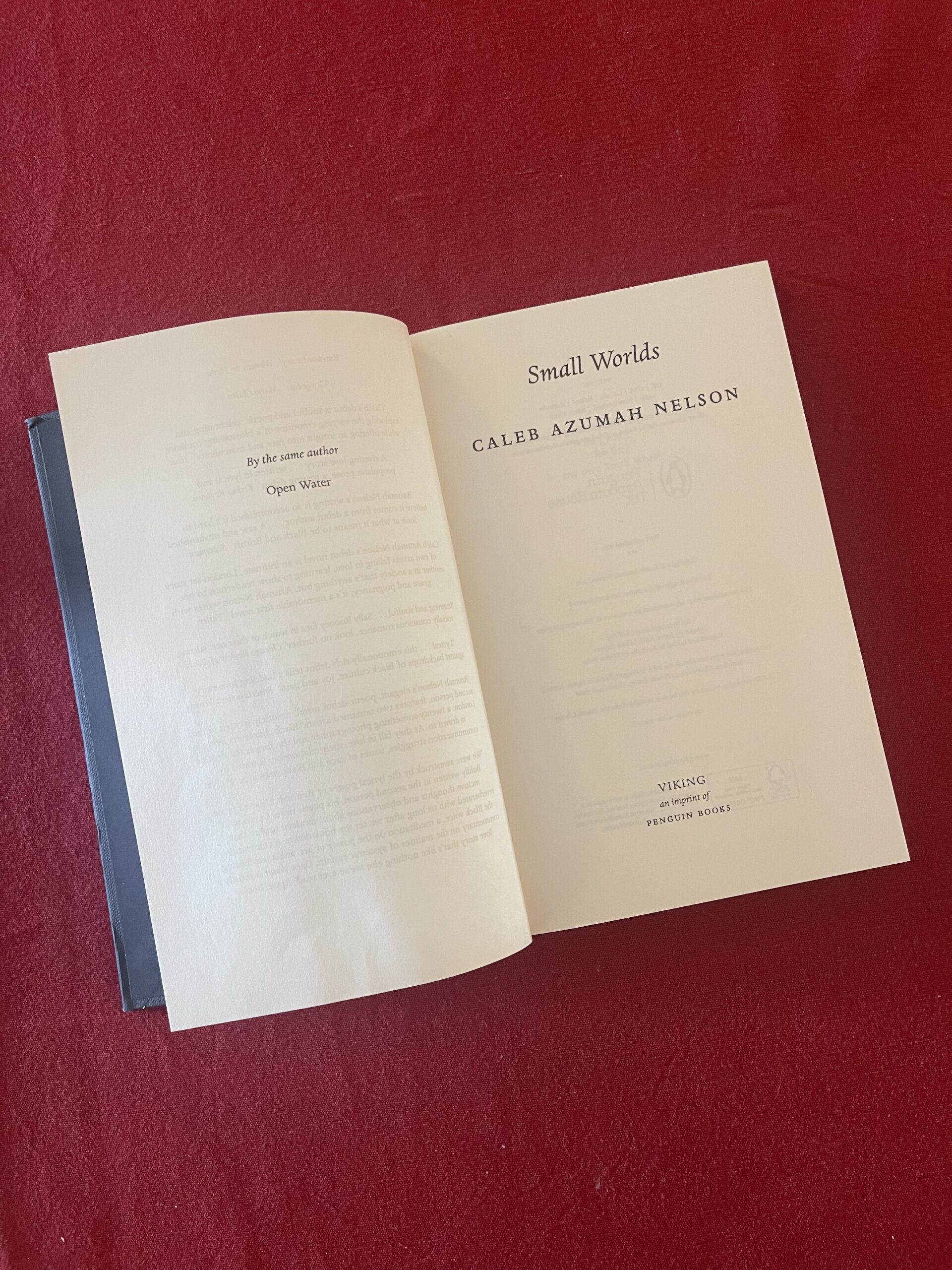Following the success of his debut novel Open Water, it comes as no surprise that Caleb Azumah Nelson’s second novel is just as stunning. Once again, he delivers a heartfelt, moving story through poetic prose.
The story follows Stephen over a short but crucial period of his life in London as the son of Ghanaian-born parents. Similar to the character followed in Open Water, Stephen finds great joy in music and dance, and a wide range of records provide a backdrop to his story. This is not the only similarity to Nelson’s first novel; Small Worlds too tackles love and identity, scrutinising what it means to be a black man in modern Britain. Small Worlds, however, has a larger focus on the role that family, both immediate and extended, play in the life of a young black man living in what is, in many ways, a foreign country. As with any discussion that surrounds family, there is beauty and love, but there is also immense pain. Familial ties that are burdened by expectations, by otherness, and for Stephen’s parents; being so far from home.
Nelson adeptly captures emotions that resonate with many young people faced with decisions about the rest of their lives. Stephen faces the age-old struggle of head vs. heart when determining his next steps. Initially influenced by expectations from his family and himself, Stephen follows what he believes he ought to do. This does not go as expected, and soon Stephen realises that doing what you feel you are supposed to do does not necessarily mean that you will feel how you are supposed to feel. So, bravely, Stephen opts for the road less taken and chooses to follow his heart instead. In doing so, he is faced with the disappointment that inevitably comes both externally and from within. The complex conflicting experiences and emotions that arise from Stephen’s decision serve to illustrate that there is no easy way to do things – at the end of the day, whatever decision you make, somebody is likely to be disappointed. This then poses a question for us all, if ours is the only life that we experience, must we only consider ourselves in our decisions? While for some this may seem straightforward, for many of us there is nuance. Nelson’s book well-illustrates that for the children of parents who have moved to another country for more opportunities, the decision is particularly difficult. For those of us who have never had to consider the sacrifices our parents have made to bring us up in a country that affords us further opportunities, particularly in regard to education and careers, I believe it is likely that we cannot fully fathom the specific difficulty of decision-making for people like Stephen, whose parent gave up everything they knew. Therefore, we are unlikely to face the same flavour of disappointment in our decisions when they go against the grain. Once again, like in Open Water, Nelson provides a dialogue that acts a window into an unknown world for some of us, and as a mirror of the familiar for many others; such is the beauty of the novel.
Small Worlds is an ode to Ghana; to the people, the food, the music, the culture, and the country itself. It is an ode to the Ghana of the African continent, and the Ghana of the London suburbs – a Ghana that is a community rather than a land. This is a community united by love and shared struggles, one that has to hold itself up while the world around it tries to push it down. To write about a black community in the UK is to write about violence; from the comparatively small indiscretions to murders carried out by those intended to protect and serve. This is also a novel about the identity of a person and how they fit into all of the cross-sections of this life.
Ultimately, Small Worlds is a love story – a love of family, of friends, of music, of Ghana, and of a girl. It is a love story about a boy and his small world, and the threads that link his world to the small worlds of those around him. Nelson creates Stephens small world, and in doing so creates a small world for the reader to subsume themselves; painfully, slowly, and beautifully.
“So? It’s just me. And you. Like we’ve always been.’ The memories come back in a rush: our tiny histories, our brief intimacies, this small world.”

